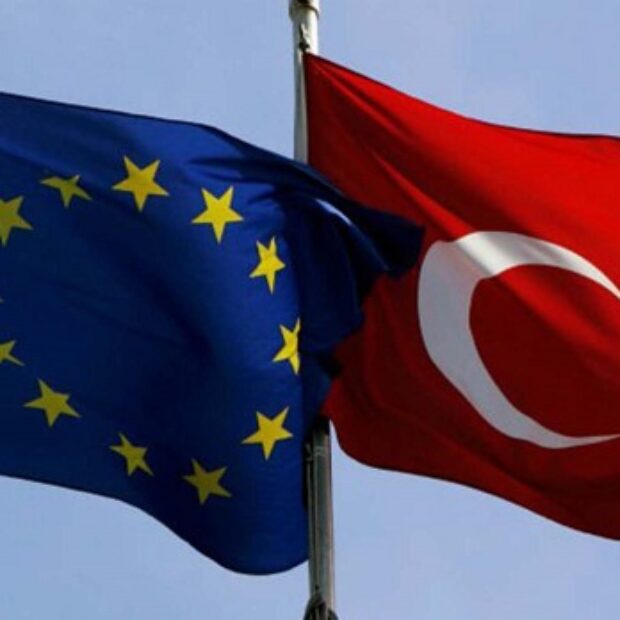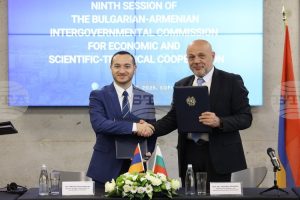EU eases Schengen access for Turks, urged to revive visa-free talks

Istanbul: The European Union has eased rules for Turks to use its open-border Schengen Area, the bloc’s ambassador to Ankara announced on Friday, calling for the urgent revival of negotiations on visa-free travel for Turks.
Turkish Trade Minister Ömer Bolat confirmed that the European Commission has issued a new document aimed at facilitating and accelerating Schengen visa procedures for Turkish citizens and has shared it with EU member states.
For years, Turkish citizens and businesses have complained about the EU’s visa system. The EU has argued that the processes, managed by accredited visa agencies, have been slow due to the high number of applications and that it was discussing possible workarounds with Ankara.
The new guidelines allow for longer-term, multiple-entry visas to be issued to Turkish nationals who have previously obtained a Schengen visa and traveled regularly without overstaying.
Bolat recalled the difficulties Turkish citizens have faced in recent years, including long appointment wait times, the issuance of very short-term visas and high rejection rates.
These concerns have been consistently raised with EU officials at all levels, including the European Commission, the European Council and bilateral meetings with member states, he said in a statement on Friday.
Ambassador Thomas Hans Ossowski said the new rules would help address Turks’ complaints over long bureaucratic processes, but warned it was not enough to permanently solve the problems.
“It will be much easier and much faster for Turkish citizens,” Ossowski told reporters in Ankara, referring to the European Commission’s new decision, in effect since July 15, simplifying the path to multiple-entry visas for Turks.
Turks who previously used visas correctly will be eligible for a six-month visa as early as their second application, followed by one-year, three-year and five-year multiple-entry visas.
Türkiye has been an EU membership candidate since 1999 but its accession process has been frozen for years over multiple disagreements, including the prolonged process of expansion of the scope of the customs union agreement, maritime issues with Greece and the Greek Cypriot administration, and EU policies on Syrian refugees.
There have recently been signs of increased engagement and economic cooperation.
Ossowski said the EU had for more than a decade offered Türkiye the prospect of visa-free travel and stressed the need to return to the liberalization process.
Negotiations for visa-free travel between the EU and Türkiye began in 2016 but yielded no results.
“Every other candidate country has visa-free travel except Türkiye,” he said. “It is urgent to re-engage in this process of visa-free travel in the Schengen space and the EU,” Ossowski added.
The commission is ready to restart formal negotiations after the summer and work with Ankara on fulfilling the six remaining benchmarks required by the visa liberalisation roadmap, he said.
“We are ready, the commission is ready to work closely with Turkish authorities,” he said.
Bolat said, Türkiye has pursued a positive agenda with the EU, initiating a high-level trade dialogue and holding key meetings in both Ankara and Brussels to begin removing barriers in bilateral relations.
“We have always reminded EU authorities and member states that visa liberalization is a right granted to Turkish citizens under international agreements,” he noted.
“In the meantime, while we await the removal of visa restrictions, we have stressed the need for practical solutions: shortening appointment times for business, tourism, transport and education-related travel, and improving the capacity of EU embassies and consulates in Türkiye.”
He noted that EU officials have acknowledged Türkiye as the second-largest recipient of Schengen visas globally – after China – with over 1 million visas issued annually and an average rejection rate of around 15%.
The latest round of detailed discussions took place on July 1 during the Türkiye-EU High-Level Trade Dialogue in Ankara.
According to Bolat, EU officials informed them during those talks that a new visa facilitation scheme was in the works.
“We are pleased to see that the European Commission has finalized and circulated this document to member states as of yesterday,” he said. “It envisions longer-term, multiple-entry visas for Turkish citizens who have demonstrated regular and reliable travel behavior, with no migration or security risk.”
“This is an important and positive development for our citizens in terms of tourism, business, trade, investment, education, academia, and civil society engagements.”
Bolat stressed that embassies and consulates of the 25 Schengen countries “no longer have any excuse” to delay the process.
“To accelerate this implementation, we urge urgent upgrades to consular infrastructure, including buildings, staffing and IT systems,” he added. “The European Commission has responded positively to our calls, officially launching the process for issuing long-term, multiple-entry visas through this new directive to member states.”
“This is a major step that will enhance cooperation between Türkiye and EU countries in trade, education, tourism, culture and investment,” Bolat said, calling visas a “physical barrier to the movement of people” that is now being eased.
Bolat also stated that efforts will continue to ease and expedite procedures for first-time visa applicants.
“We believe this facilitation and acceleration process will soon apply to first-time applicants as well, provided that everyone complies with the updated regulations,” he said.
Looking ahead, Bolat reiterated that Türkiye expects progress in expanding and modernizing the EU-Türkiye Customs Union to include services and e-commerce.
“The commission has already recommended the start of negotiations. The matter now rests with the European Council. Once approval is granted, we are ready to begin talks immediately – and so is the commission,” he concluded.
First implemented in 1995, the Türkiye-EU Customs Union has helped boost economic ties. But business groups have long argued that the agreement is outdated and ill-suited for today’s trade environment.
A host of disagreements over recent years have stalled the negotiations. The deeper 1990s-era agreement would be expanded to services, farm goods and public procurement. The current deal only covers a limited range of industrial products.
Türkiye’s total trade volume with Europe – including both EU and non-EU countries – reached $327 billion in 2024, with $149 billion in exports and $178 billion in imports, according to the Foreign Economic Relations Board (DEIK).





